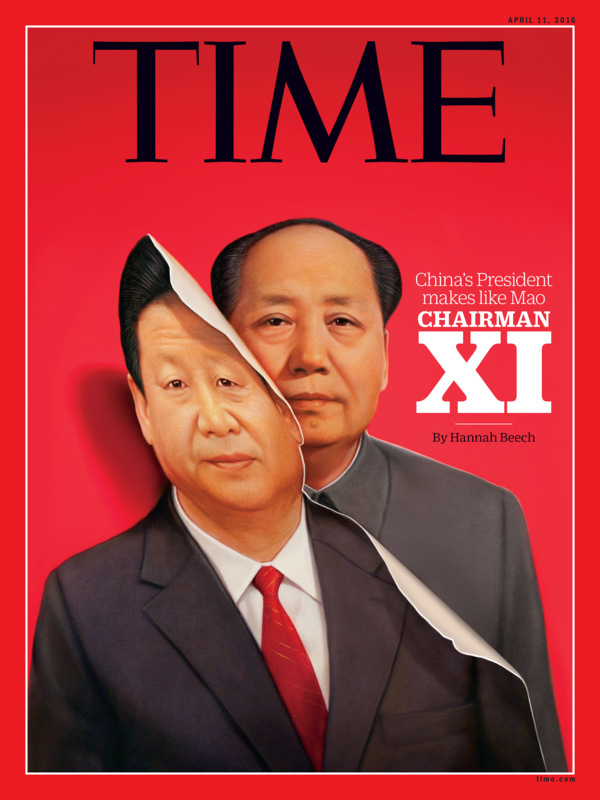|
|
|
|
|
 。 。 |
|
2019/06/11 06:08 |
只有你,這麼批評台大!
|
|
摸 象 或 (不?) 著 木目(mbr8879576) 於 2019-06-11 07:31 回覆: |
|
謝謝。
不是批評﹐是 實話實說。
高阪知武 是日本二战後留在台大的老教授。他的興趣是大提琴。上了幾門(2?)他的課,整個學期 話題 離不開 鋤頭。
他是 極端的例子。
又例﹐MiT 博士 教育部長 鍾皎光﹐教 冷凍學。 查 該領域 多年來﹐並無新進展。 資料 乃是發黃的 ....
|
|
|
|
|
|
|
|
 问题不大。 问题不大。 |
|
2019/06/10 20:55 |
红二代躺着数钱的日子不多了。
红二代一旦开始科技革命,那就好了。
中国应该是比较certain。
|
|
|
|
|
|
|
|
|
 纽约 哥倫比亞 蛋頭學者 Jeffrey Sachs 不同 貿易战 看法 纽约 哥倫比亞 蛋頭學者 Jeffrey Sachs 不同 貿易战 看法 |
|
2019/06/10 16:41 |
In 1839, Britain attacked China because it refused to allow British traders to continue providing Chinese people with addictive opium. Britain prevailed, and the humiliation of China's defeat in the First Opium War, ending in 1842, contributed in part to a mass uprising against the Qing Dynasty called the Taiping Rebellion that ended up causing more than 20 million deaths. A Second Opium War against Britain and France ultimately led to the continued erosion of China's power and internal stability.
Toward the end of the 19th century, China lost a war to the newly industrializing Japan, and was subjected to yet more one-sided demands by Europe and the United States for trade. These humiliations led to another rebellion, followed by yet another defeat, at the hands of foreign powers. China's Qing Dynasty fell in 1911, after which China quickly succumbed to warlords, internal strife and Japan's invasion of China beginning in 1931. The end of World War II was followed by civil war, the creation of the People's Republic of China in 1949 and then the upheavals of Maoism, including millions of deaths from famine in the Great Leap Forward, which ended in the early 1960s, and the mass destabilization of the Cultural Revolution and its aftermath until 1977.
China's rapid development on a market basis therefore started only in 1978, when Deng Xiaoping came to power and launched sweeping economic reforms. While China has seen incredible growth in the past four decades, the legacy of more than a century of poverty, instability, invasion and foreign threats still looms large. Chinese leaders would like to get things right this time, and that means they are unwilling to bow to the United States or other Western powers again.
懇請不吝賜教? |
|
摸 象 或 (不?) 著 木目(mbr8879576) 於 2019-06-10 16:45 回覆: |
|
|
Jeffrey Sachs is a professor and director of the Center for Sustainable Development at Columbia University.
|
|
|
|
|
|
|
|
 纽约 哥倫比亞 蛋頭學者 Jeffrey Sachs 不同 貿易战 看法 纽约 哥倫比亞 蛋頭學者 Jeffrey Sachs 不同 貿易战 看法 |
|
2019/06/10 15:53 |
China is now the second-largest economy in the world, when GDP is measured at market prices. Yet it is a country still in the process of catching up from poverty. In 1980, according to IMF data, China's GDP per capita was a mere 2.5% of the United States, and by 2018 had reached only 15.3% of the US level. When GDP is measured in purchasing-power-parity terms, by using a common set of "international prices" to value GDP in all countries, China's income per capita in 2018 was a bit higher at 28.9% of the United States.
China has roughly followed the same development strategy as Japan, Korea, Taiwan, Hong Kong and Singapore before it. From an economic standpoint, it is not doing anything particularly unusual for a country that is playing catch up.The constant US refrain that China "steals" technologies is highly simplistic.
Countries that are lagging behind upgrade their technologies in many ways, through study, imitation, purchases, mergers, foreign investments, extensive use of off-patent knowledge and, yes, copying. And with any fast-changing technologies, there are always running battles over intellectual property. That's true even among US companies today -- this kind of competition is simply a part of the global economic system. Technology leaders know they shouldn't count on keeping their lead through protection, but through continued innovation.
A trade war with China won't solve our economic problems. Instead we need homegrown solutions: affordable health care, better schools, modernized infrastructure, higher minimum wages and a crackdown on corporate greed. In the process, we would also learn that we have far more to gain through cooperation with China rather than reckless and unfair provocation.
懇請不吝賜教? |
|
|
|
|
|
|
|
|
 Kishore Mahbubani 不同 声音 Kishore Mahbubani 不同 声音 |
|
2019/06/10 15:37 |
America's Fundamental Misunderstanding of China ~ Kishore Mahbubani
"The West has lost the art of sharing power," says Kishore Mahbubani
懇請不吝賜教? |
|
摸 象 或 (不?) 著 木目(mbr8879576) 於 2019-06-10 15:39 回覆: |
|
|
Prof. Kishore Mahbubani who was a Singapore diplomat for 33 years and was once the Singapore UN ambassador and UN security council member.
|
|
|
|
|


 字體:小 中 大
字體:小 中 大









